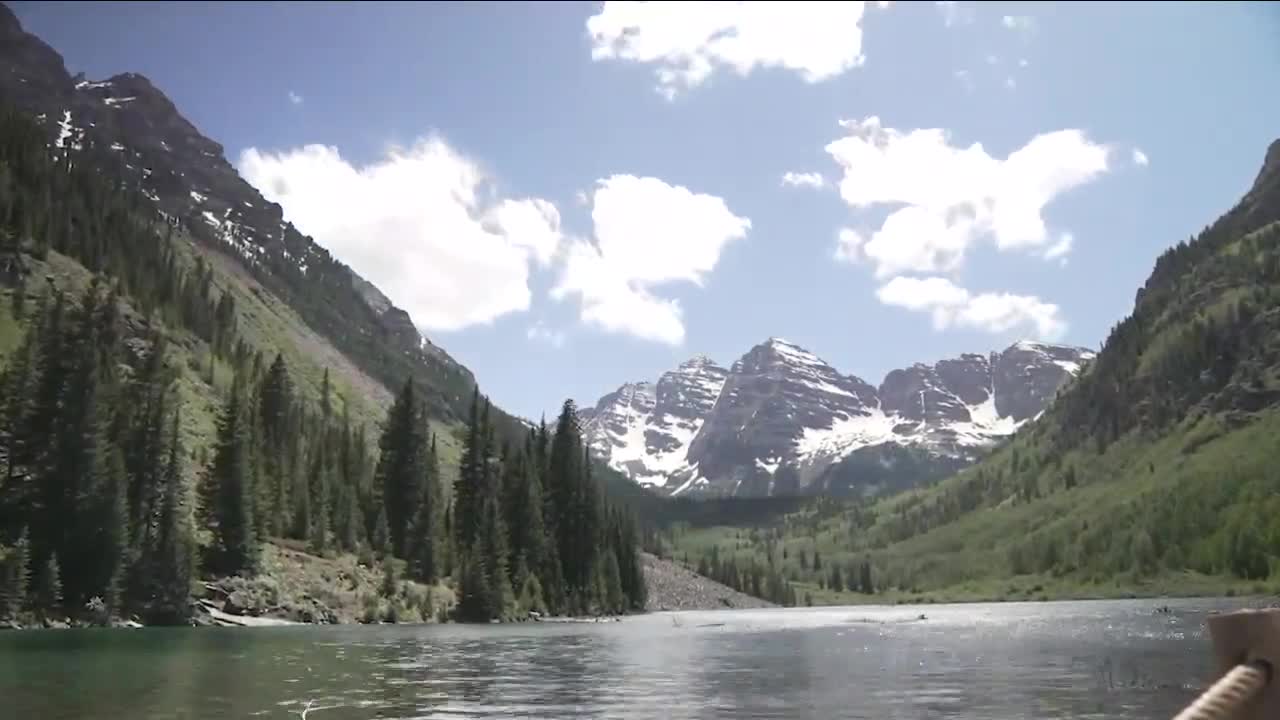WHITE RIVER NATIONAL FOREST — As Colorado summer settles in, many residents are ready to escape the Denver metro area and head to the mountains. That becomes problematic when so many Coloradans, along with tourists, want to be in the same place at the same time.
It is an issue Maroon Bells has experienced for decades. As one of the most iconic views in the entire state, thousands of people flock to the White River National Forest every year to get a glimpse of the mountains.
"This place got completely out of control back in the 1970s," said Owen O'Farrell, who drives one of the buses to and from Maroon Bells. “The grass started to recede away from the edge of the road, which is a really bad sign up there. And the wildflowers came back every year, but they didn't come back at the numbers that they really should.”
According to O'Farrell, everything began to look dull surrounding the Maroon Bells as a result of overuse.
"In 1977, they lost this big strand of aspen trees to a fungus that developed from the carbon monoxide. And at that point, they realized they had to do something about the cars, and the buses became involved," O'Farrell explained to the guests on his bus during a ride up to the Maroon Bells. "As soon as they did, the whole ecosystem turned around almost immediately. It's absolutely gorgeous up there.”

Along with the buses, a reservation system is in place at Maroon Bells. The reservations started as a result of the pandemic, but the US Forest Service had been considering the idea before 2020.
“For years, the Forest Service was working with all the local community to try to better manage the visitation that had doubled from 2014 to 2018," said Kevin Warner, the district ranger for the Aspen-Sopris Ranger District of the White River National Forest. “Part of that had been considering something like a reservation system.”
A reservation system is a form of managed use. It's not the first measure those with the Forest Service utilize. Typically, the Forest Service initially tries to educate users on how to treat the resource responsibly. If that does not work, then certain engineering tactics will be used to make sure people stay on a designated surface.
If those steps are not successful, then enforcement is the next option. Their last solution is a reservation system, which is done to protect both the environment and the visitor's experience.
“This is not a theme park. This is the wilderness, this is beauty, this is Mother Nature," said Ken Murphy, the manager of the H20 Ventures reservation system. “Unless we have some form of managed use to these popular areas, then it may turn into that theme park concept."
Murphy believes managed use, and specifically reservation systems, could be the way of the future for many of Colorado's attractions.
“Colorado is a beautiful spot to come and visit, and we're all going to have more and more people coming to visit," Murphy said. “Stop and talk to someone that's been here for plenty of years and they'll tell you the good, the bad, and the ugly of not having the reservation system in place.”
Murphy estimated that 1,000 guests use the Maroon Bells shuttle every day, from the first departure at 8 a.m. to the final arrival at 5 p.m.
Click here to learn more about reservations at Maroon Bells.
Hanging Lake will open to the public on Saturday, June 25, and also requires reservations for visitors. Murphy says the reservation system was implemented there in 2019 because the facility had been "loved to death."




